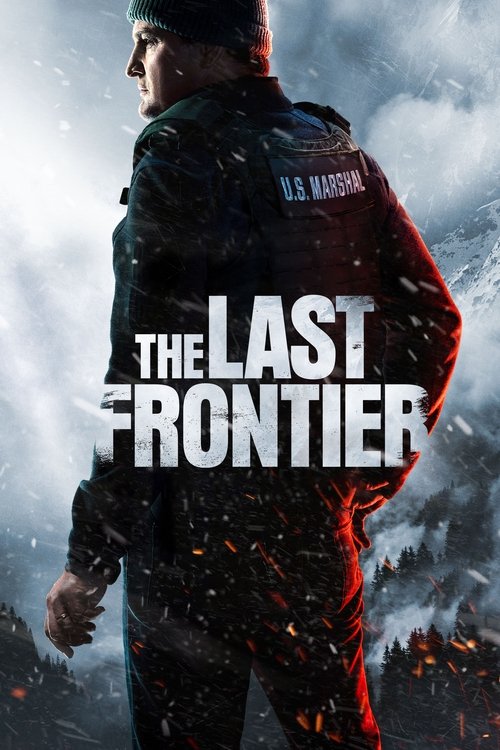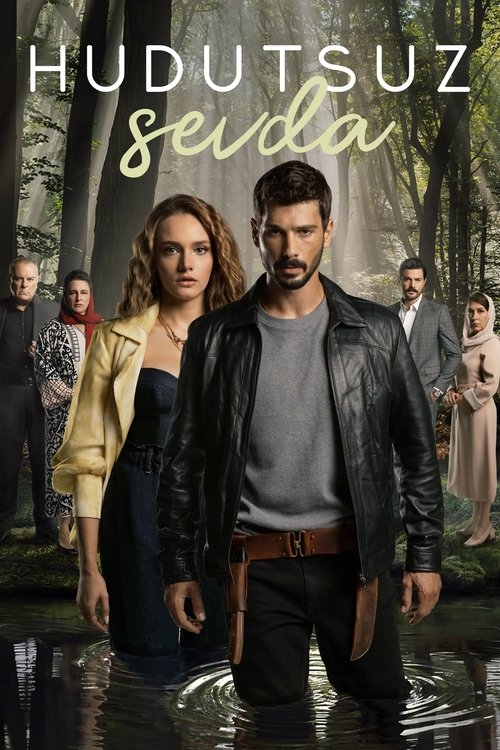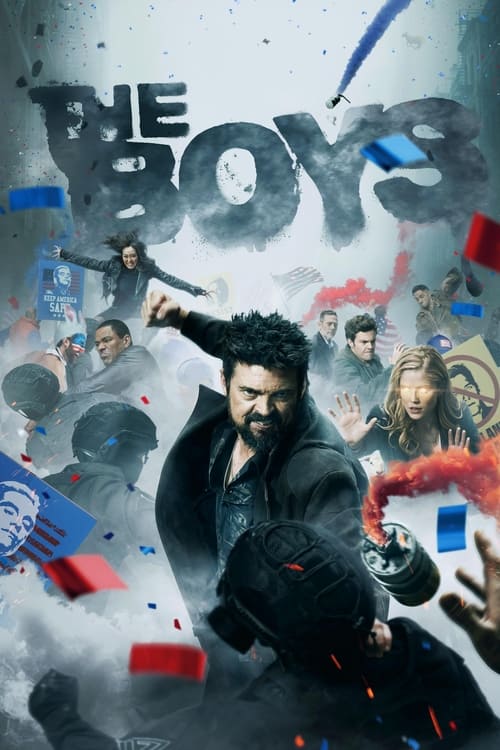
Ask Your Own Question
What is the plot?
The Studio Season 1 begins with Matt Remick, a passionate cinephile, unexpectedly promoted to head Continental Studios after longtime studio chief Patty Leigh is fired. Matt's appointment comes with a condition from CEO Griffin Mill: he must greenlight a big-budget, all-ages movie based on the Kool-Aid brand, a project Matt personally dislikes but agrees to as part of his new role. This sets up the central tension between Matt's artistic ambitions and the commercial demands of running a major studio.
Early in the season, Matt tries to assert his creative vision by pushing for more artistically ambitious projects. In the episode titled "The Promotion," Matt attempts to package a long-gestating Martin Scorsese project about the Jonestown Massacre alongside the Kool-Aid film, hoping to elevate the studio's prestige. This backfires when Scorsese becomes emotional and upset at a party hosted by Charlize Theron, highlighting the clash between Matt's cinephile ideals and Hollywood's commercial realities.
In "The Oner," Matt's passion leads him to visit a film in production against the advice of his team. The episode is shot to mimic a continuous one-take, emphasizing Matt's intrusive presence as he repeatedly interrupts and tries to influence the filming of a Sarah Polley-directed movie starring Greta Lee. His overbearing behavior causes tension on set and disrupts the production, illustrating Matt's struggle to balance enthusiasm with respect for the creative process.
Mid-season, Matt faces personal and professional challenges that deepen his character. In "The Pediatric Oncologist," he grapples with feelings of inadequacy when compared to people in other fields who have more direct, life-changing impacts. This episode explores Matt's internal conflict about his role in Hollywood and his desire for meaningful recognition beyond box office success.
A major plotline involves a chaotic incident with Olivia Wilde, who plays a fictionalized version of herself. In an episode centered on a reshoot dispute, Olivia steals the film reel from her own production in a desperate attempt to force the studio's hand. This leads to a frantic chase sequence where the reel is physically destroyed after rolling off down a highway, a moment that is both visually striking and darkly comedic, symbolizing the absurdity and volatility of filmmaking.
As the season progresses, Matt's frustration grows over the paradox of his power and invisibility. When one of the films he greenlit is nominated for a Golden Globe, he realizes he cannot publicly claim credit or appear on stage if it wins. This realization is compounded by a phone call from his mother, voiced by Rhea Perlman, who expresses disappointment that Matt won't receive the recognition he deserves. This moment crystallizes Matt's internal crisis about the nature of contemporary Hollywood, where studio executives wield influence but remain largely unacknowledged by the public.
Throughout the season, Matt's closest allies include Sal Saperstein, his best friend and a more commercially minded executive, Quinn Hackett, his assistant promoted to junior executive, and Maya Mason, head of marketing. Their interactions provide both comedic relief and insight into the complex dynamics of studio politics and friendship under pressure.
In the episode "The Note," Matt must deliver critical feedback to Ron Howard on an indulgent sequence in an Anthony Mackie film. Ron Howard's unexpectedly menacing reaction adds tension and humor, showcasing the precarious balance Matt must maintain between diplomacy and authority.
Another notable episode, "The Missing Reel," adopts a noir style reminiscent of Chinatown. Matt becomes convinced that Zac Efron has stolen a reel from Olivia Wilde's film, leading to a detective-like investigation filled with twists and misunderstandings. This episode blends mystery and satire, highlighting the absurd lengths Matt goes to protect his projects.
The season also explores the personal lives of the supporting characters, such as Sal and Quinn, particularly in "The War," which delves into their backstories and motivations. While this episode is more character-driven and less focused on satire, it adds depth to the ensemble and sets up future developments.
By the season finale, Matt has come to terms with the contradictions of his position. He understands that while he can support films he loves, he may never receive public acclaim or awards recognition. The season closes on this bittersweet note, with Matt embracing his role as a powerful yet invisible figure in Hollywood, committed to navigating the absurd and often frustrating world of studio filmmaking.
What is the ending?
The first season of The Studio ends with Matt Remick successfully presenting Continental Studios' new film slate at CinemaCon, despite chaos caused by Griffin Mill's drunken antics and a wild party atmosphere. The presentation is a hit, giving Remick hope that the studio can survive and thrive, though Griffin's future as CEO is uncertain. The season closes on an optimistic note with the team united and the show renewed for a second season.
The ending unfolds at CinemaCon in Las Vegas, where Continental Studios is set to announce its upcoming films. The scene opens with a chaotic party atmosphere backstage: Griffin Mill, the studio's CEO, is heavily intoxicated and behaving erratically. He climbs a fountain statue and attempts to make love to a stone-carved Aphrodite, while Patty Lee, a former studio head fired by Griffin, films his antics, clearly aiming to sabotage him.
Despite Griffin's public embarrassment and the risk it poses to the studio, Matt Remick, the new executive, rallies the team to pull off the presentation. The group, including notable actors like Zoë Kravitz and Dave Franco, are seen tripping on mushrooms, leading to surreal and comedic moments reminiscent of films like The Hangover and This Is the End.
As the presentation begins, Griffin struggles to speak coherently, repeatedly stuck on the word "movie." Remick improvises by encouraging the audience to join Griffin in chanting "Movies! Movies! Movies!" This unorthodox approach turns the presentation into a memorable and successful event, impressing the crowd and potentially saving Continental Studios from an Amazon takeover.
The announced film slate includes a Ron Howard crime drama starring Anthony Mackie titled Alphabet City, a romance drama by Sarah Polley starring Greta Lee called The Silver Lake, Zoë Kravitz's superhero film Blackwing, and the much-anticipated "Kool-Aid movie," which has been a recurring focus throughout the season.
At the end of the presentation, Remick thanks each member of the cast and crew personally, expressing gratitude for their efforts during his first year as a film executive. Griffin, still intoxicated, is held up by Remick as he slurs his speech, creating a moment of levity and camaraderie. The team's unity and the positive reception of the presentation leave Remick feeling fulfilled and cautiously optimistic about the studio's future.
Regarding the characters' fates: Matt Remick emerges as a hopeful leader who may steer Continental Studios into a new era. Griffin Mill, despite his chaotic behavior, remains part of the story but faces an uncertain future, with hints that the board may replace him due to his public mishaps. Patty Lee, who sought revenge by exposing Griffin's misbehavior, remains a disruptive force but her knowledge about the Amazon takeover remains unclear.
The season closes on a hopeful note, with the studio saved for now and the show renewed for a second season, promising further exploration of the characters and the industry's challenges.
Is there a post-credit scene?
For the TV show The Studio, season 1 (2025), there is no specific information in the available sources indicating the presence of a post-credit scene. The detailed episode summaries and recaps do not mention any post-credit scenes or additional content after the credits in any episode, including the finale.
The sources focus on episode content, character interactions, and plot developments but do not describe any scenes occurring after the credits roll. Therefore, it appears that The Studio season 1 does not include a post-credit scene.
What are the 5 most popular questions people ask about The Studio, Season 1 (2025) that deal specifically with the story content, excluding 'What is the overall plot?' and 'What is the ending?'
The five most popular story-related questions people ask about The Studio, Season 1, excluding the overall plot and ending, are:
- How does the show portray the inner workings and challenges of Hollywood studio life?
- What kind of humor and style does the series use to depict the entertainment industry?
- Who are the main characters, and how do their personalities and roles influence the story?
- How do the cameo appearances contribute to the story and tone of the series?
- What themes about art versus commerce and the filmmaking process are explored throughout the season?
These questions arise from viewers' interest in the show's satirical yet affectionate take on Hollywood, its character dynamics, and its blend of humor and industry insight.
Is this family friendly?
The TV show The Studio (Season 1, 2025) is not family friendly and is rated TV-MA (Mature Audience) with a recommended age of 15+ due to its content.
Potentially objectionable or upsetting aspects for children or sensitive viewers include:
- Frequent and severe profanity, including over 80 uses of the f-word throughout the series.
- Explicit sexual content, including a graphic doggy style sex scene with intense thrusting and audio, sensual lesbian kissing, and crude sexual references throughout.
- Nudity, including fully nude statues as decor and some sexual nudity in scenes.
- Drug use, including brief but graphic cocaine snorting, references to alcohol (vodka), and brief smoking.
- Mild violence and intense scenes, with some sustained tension and coarse language contributing to an overall mature tone.
- The show satirizes Hollywood excesses such as drugs, sex, and 48-hour parties, which may be uncomfortable or inappropriate for younger or sensitive viewers.
Overall, The Studio contains mature themes, explicit language, sexual content, and drug use that make it unsuitable for children and sensitive audiences.
Does the dog die?
In the TV show "The Studio," season 1 (2025), the dog does not die. According to the detailed trigger reports on DoesTheDogDie.com, there are no confirmed instances of a dog dying in this series; the "Does the dog die?" question has zero supporters for "Yes" and zero for "No," indicating no reported dog death in the show.
Additional context: The show centers on a legacy Hollywood movie studio struggling to balance art and commerce, with no significant plot points involving the death of a dog. The closest related content involves a brief scene around episode 9 and 10, but it does not involve a dog dying.











